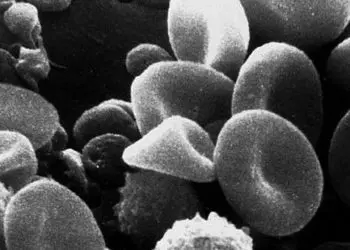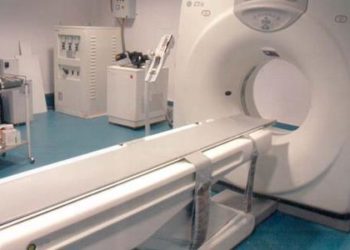Low dose CT screening may detect early lung cancers: the NELSON trial
1. In a high-risk population, low-dose CT screening detected lung cancer with 84.6% sensitivity and 98.6% specificity.
2. Screen-detected cancers were found at earlier stages as compared to interval cancers not picked up on screening.
Evidence Rating: 1 (Excellent)
Study Rundown: The US Preventative Services Task Force has recommended annual low-dose CT screening for people at high risk for developing lung cancer. However, previous smaller studies have failed to show a survival benefit with this screening. In this study, over 7100 patients in the Netherlands were randomized to screening with increasing intervals or no screening. This pre-specified analysis did not include the non-screening arm, but examined solely the performance of low dose CT as a screening strategy. After a median follow-up time of 8.16 years, there were 196 screen-detected lung cancers and 35 interval lung cancers. This equated to a screening sensitivity of 84.6% and specificity of 98.6%; the positive and negative predictive values were 40.4% and 99.8%, respectively. Of the interval cancers, 35% were not visible on screening CT while the remainder was erroneously not diagnosed. Significantly, 83% of interval cancers were detected at stage III or IV while only 22% of screen-detected cancers were advanced at the time of diagnosis. Interval cancers were more likely to be small-cell carcinomas while screen-detected cancers were more likely to be adenocarcinomas. The results of this trial demonstrate that low does CT screening provides high sensitivity and specificity to detect early lung cancer in a high-risk population. However, the study is limited by a lack of survival data and comparison to the non-screening arm.
Click to read the study in Lancet Oncology
Relevant Reading: Lung cancer screening: achieving more by intervening less (The Lancet)
In-Depth [randomized controlled trial]: In this report, 7155 patients aged 50-75 years with a recent smoking history were included. All patients received low-dose CT screening at 1, 3, and 5.5 years and were followed up at a median duration of 8.16 years. Reflecting the high-risk population, 84% of participants were male and 55% were still currently smoking. A total of 187 (3%) participants were diagnosed with 196 screen-detected lung cancers during the follow-up period. Thirty-four (<1%) participants were diagnosed with 35 interval cancers. For all 3 screening events combined, sensitivity was 84.6% (95% CI: 79.6-89.2%) and specificity was 98.6% (95% CI: 98.5-98.8). The positive predictive value was 40.4% (95% CI: 35.9-44.7%) while the negative predictive value was 99.8% (95% CI: 99.8-99.9). Of the 35 interval cancers, 12 were determined retrospectively to not be visible on screening studies. Of the remaining undetected cases, diagnoses were missed primarily due to misinterpretation (50%), misclassification (6%), and participant non-compliance (6%). Eighty-three percent of interval cancers were Stage III or IV at diagnosis compared to 22% of screen-detected cancers (p < 0.0001).
More from this author: Erlotinib does not demonstrate increased survival in ovarian epithelial carcinomas, Afatinib shows increased progression-free survival in non-small-cell lung cancer, New method may predict response to chemotherapy for lung cancer, Escalated-dose radiotherapy did not increase survival in prostate cancer, Stereotactic radiosurgery promising for patients with multiple brain metastases
Image: PD
©2012-2014 2minutemedicine.com. All rights reserved. No works may be reproduced without expressed written consent from 2minutemedicine.com. Disclaimer: We present factual information directly from peer reviewed medical journals. No post should be construed as medical advice and is not intended as such by the authors, editors, staff or by 2minutemedicine.com. PLEASE SEE A HEALTHCARE PROVIDER IN YOUR AREA IF YOU SEEK MEDICAL ADVICE OF ANY SORT.









